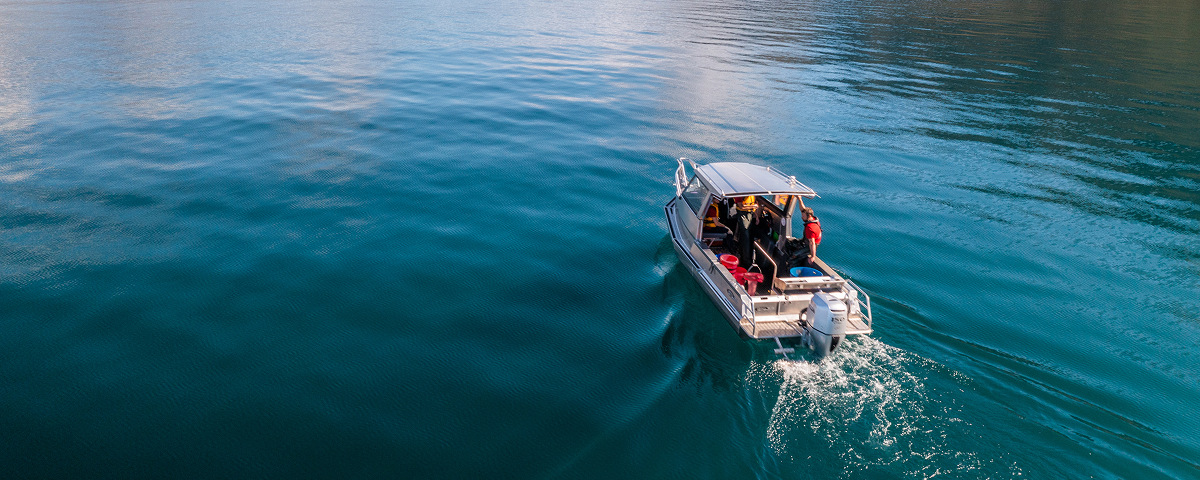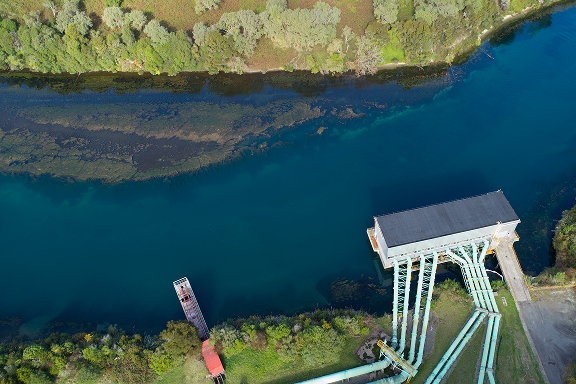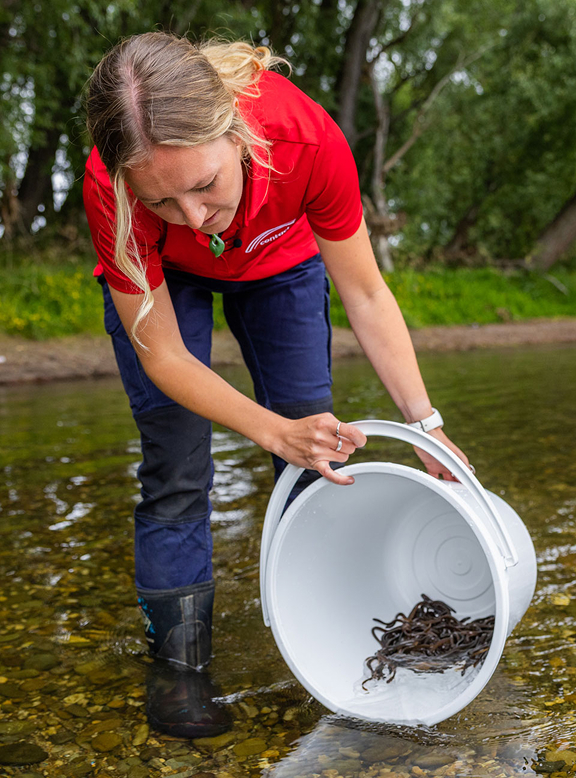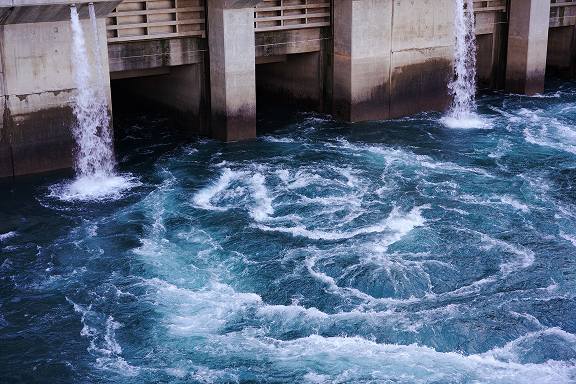We are committed to reduce and mitigate the impacts of our operations on the natural environment, and significantly reduce our impacts on local surface waterways.
As an example, in line with our consent requirements, at Wairakei we will stop discharging cooling water into the Waikato River no later than 2031. As we develop plans for the long-term operation of the Wairakei steamfield beyond June 2026, we will undertake a number of environmental improvements, including ceasing the discharge of separated geothermal water to the Waikato River.
We’ve worked hard over many years to understand the perspectives of iwi, hapū and our communities and we engaged with all these stakeholders through the renewed consenting process for our Wairakei A & B Geothermal stations. We are committed to continue building and maintaining these relationships for the long-term.
We’re also exploring ways to capture stormwater at our new developments to reduce our reliance on freshwater systems such as the awa and council supplies.
In the South Island, we are part of the Central Otago community through our management and guardianship of the Clyde and Roxburgh Dams. We take this role seriously to meet community expectations and our resource consent obligations. We’ve committed to the Kawarau Arm Community Project and have been running our Native Fish Management Programme for many years. Native fish species help us understand the health of a river, and we’re making efforts to draw better insights from the data we capture in the programme.
We employ qualified and experienced experts to manage our resource consent compliance at all our generation sites. They also undertake the appropriate Environmental Impacts Assessments relating to our water takes, discharges and non-consumptive use. These assessments are completed at the time of application and are reviewed annually. As part of our consents, controls (or conditions) are imposed on Contact, including ongoing monitoring and sampling, to ensure we manage our water impacts to the required limits.
As part of the consenting process, priority substances of concern, like arsenic, hydrogen sulphide and mercury, are identified and limits set for their discharge to ensure effects on the environment are no more than minor. For example, weekly limits apply to the discharge relating to hydrogen sulphide loads in the cooling water from our Wairakei Geothermal Power Station discharged to the Waikato River.
While we do not operate in areas that face water-stress, we are conscious that our communities rely on the water systems we impact for sustenance and recreation.
When it comes to water, we understand we're on a continuous journey. We're constantly reviewing the way we operate and engage with our stakeholders, making changes that will reap benefits over the long term. You can stay in the loop on our progress against these commitments here on our website and in our company reports.











